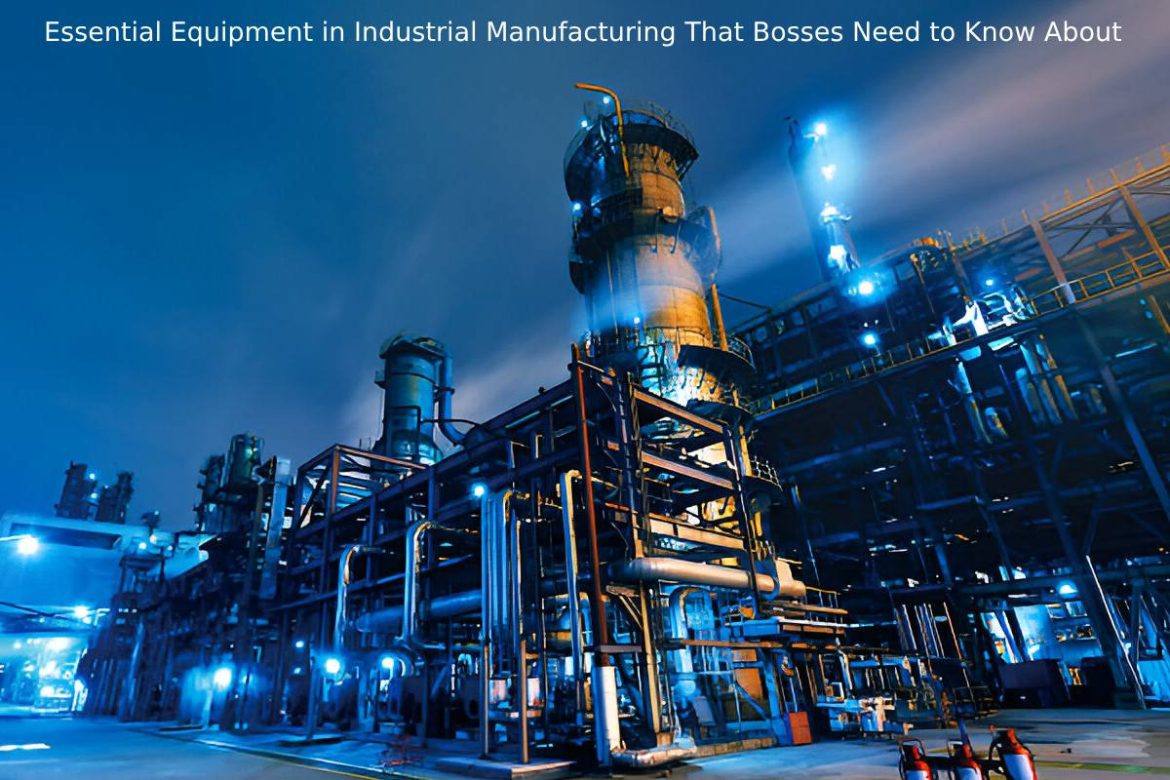Industrial manufacturing relies heavily on specialized equipment to streamline processes, boost productivity, and maintain quality control. For managers and decision-makers in manufacturing, understanding the core equipment used in various stages of production is essential for optimizing operations, ensuring safety, and sustaining profitability. Here are some key pieces of equipment that play crucial roles across manufacturing sectors.
Computer Numerical Control (CNC) Machines
CNC machines are fundamental in industries requiring precision cutting, shaping, and drilling. CNC technology allows operators to program complex instructions, enabling machines to manufacture intricate parts with consistent accuracy. These machines reduce human error, speed up production, and ensure high repeatability, making them ideal for the automotive, aerospace, and electronics industries. For bosses, investing in high-quality CNC machines can significantly increase production efficiency and precision, reducing the likelihood of costly rework.
Industrial Robots
Industrial robots are redefining automation in manufacturing, capable of performing repetitive tasks faster and more accurately than humans. They are used for tasks like welding, assembly, material handling, and packaging. Today’s robots come with advanced capabilities like AI-driven vision systems, which allow them to adapt to various products and situations. While the upfront cost may be high, industrial robots reduce long-term labor costs and increase workplace safety by handling hazardous tasks.
Conveyors and Material Handling Systems
Efficient material handling is at the heart of streamlined manufacturing processes. Conveyors and automated guided vehicles (AGVs) move raw materials and finished products throughout the factory floor. These systems reduce the need for manual transportation, minimize bottlenecks, and increase production speed. AGVs are particularly valuable because they can navigate warehouses autonomously, reducing reliance on forklifts and manual labor. For leaders looking to enhance productivity, integrating automated handling systems can provide a quick return on investment.
Crushers
Crushers are essential in manufacturing processes that involve breaking down large materials, particularly in sectors like mining, construction, recycling, and metallurgy. Crushers are used to reduce the size of raw materials such as rocks, metals, and minerals, making them easier to handle and more suitable for further processing. Various types of crushers, such as jaw crushers, cone crushers, and impact crushers, cater to different materials and requirements and are available to buy from machinerypartner.com.
3D Printers
Additive manufacturing, or 3D printing, is transforming prototyping and production in manufacturing. 3D printers allow companies to produce custom parts and prototypes quickly and cost-effectively, often bypassing traditional manufacturing processes that require molds or tooling. They are particularly beneficial in industries like healthcare, aerospace, and automotive, where customization and rapid prototyping are essential. By adopting 3D printing, companies can reduce lead times and minimize waste, a benefit for both production speed and sustainability.
Air Compressors and Pneumatic Systems
Air compressors power pneumatic tools, which are widely used in manufacturing for tasks like assembly, painting, and packaging. Pneumatic systems are reliable, low-maintenance, and easy to control, making them a staple in many production facilities. As essential utility equipment, air compressors also power various types of machinery and tools, allowing for efficient multi-machine operations. Managers need to ensure that the air compressors used are adequately sized and maintained to meet the facility’s production needs.
Quality Control Equipment
Ensuring product quality is paramount in manufacturing. Equipment like coordinate measuring machines (CMM), optical inspection systems, and laser scanners play a vital role in verifying that components meet specifications. These devices help catch defects early, reducing the likelihood of costly recalls and rework. Advanced quality control equipment is especially crucial in industries where precision is non-negotiable, such as aerospace, automotive, and medical device manufacturing.


